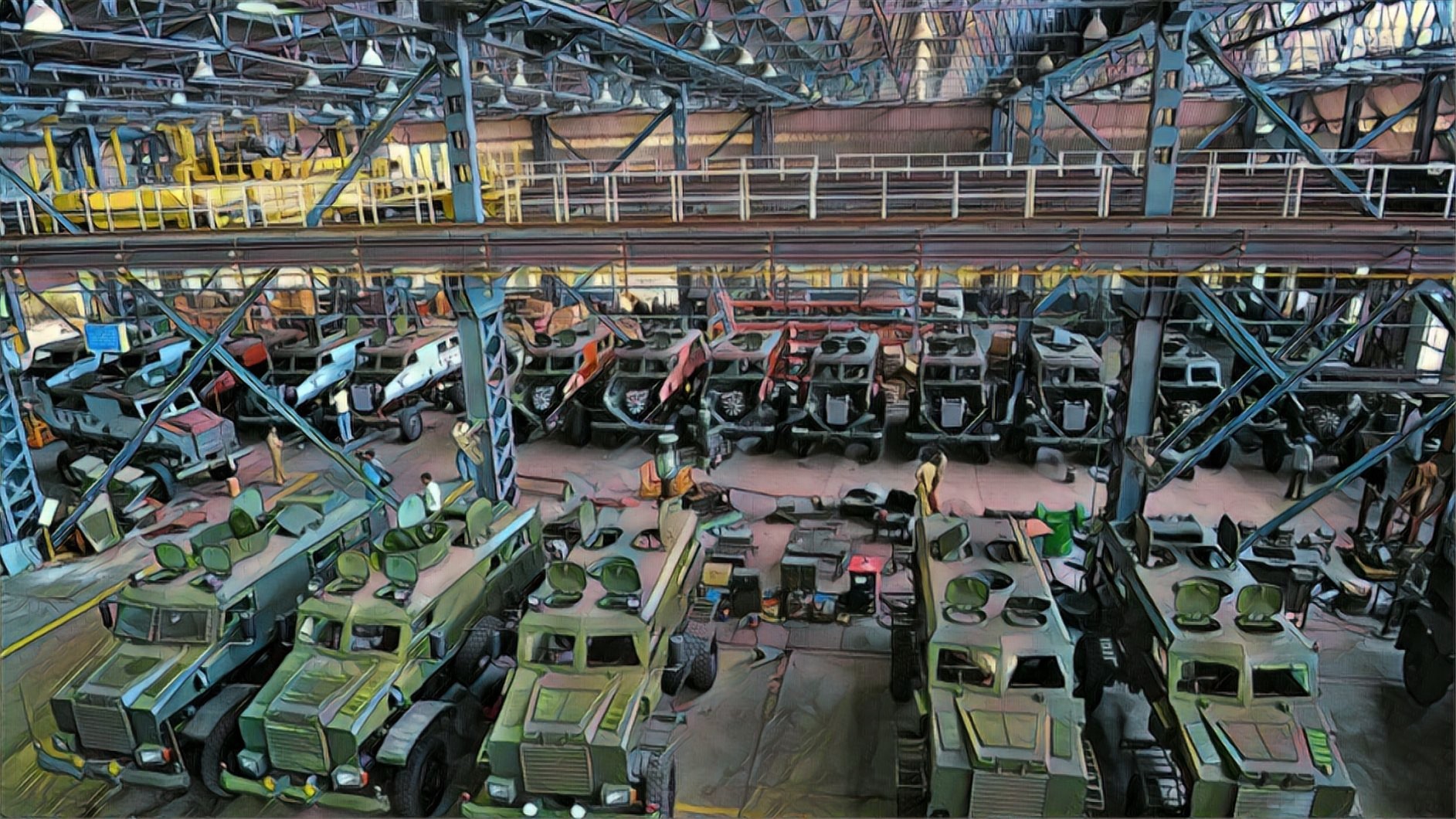Launched in 2014, the Modi government’s ‘Make in India’ initiative has given the country’s indigenous defense manufacturing a significant boost.
Now, the government has decided to restructure the Ordnance Factory Board (OFB) and create seven new entities to further improve productivity and quality.
The government has accepted a proposal to replace the almost 200-year-old OFB with seven new defense Public Sector Undertakings (PSUs), The Indian Express reported. Currently, the OFB operates 41 ammunition and equipment factories.
The decision aims to alter the ordnance factories into productive and lucrative assets, increasing the specialization in the product range, improve efficiency and competitiveness.
Terming the development as a “historic decision”, Defence Minister Rajnath Singh said, “It is a major decision from the perspective of national security. India should be Atmanirbhar (self-reliant) when it comes to national security.”
How Will It Work?
The media report quoted an official as saying that the new structure will help in overcoming shortcomings in the existing system of OFB by “eliminating inefficient supply chains and providing these companies incentive to become competitive and exploring new opportunities, including exports”.
The Defence Minister also assured the OFB employees that there will be no job loss because of this restructuring. “I assure that the service conditions of the employees will not be affected by the move,” he said.

At present, the OFB is under the Department of Defence Production of the Defense Ministry. According to reports, the seven entities will be professionally managed, and that they will take a formal shape by the end of this year.
The new entities will produce ammunition and explosives, weapons and equipment, vehicles, troop comfort items, optoelectronics equipment, parachutes, and ancillary products, news agency PTI quoted officials as saying.
The task of the ammunition and explosives vertical will be to produce ammunition and explosives, with the prime focus on delivering export-quality products.
The vehicles group will be responsible for the manufacture of defense mobility and combat vehicles, such as tanks, BMPs (infantry fighting vehicle), and mine-protected vehicles. This vertical will aim to enhance its share in the domestic market and look for export avenues.

Make in India
The ‘Make in India’ initiative was launched in 2014 to boost indigenous manufacturing in India. Through this, the domestic defense manufacturing sector seems to have received a significant push.
The Defense Ministry set a target of $25 billion for defense production in the period 2020-2024. India intends to push domestic manufacturing to export military hardware worth $5 billion in the next five years. Dr. Ram Singh, a foreign trade analyst, wrote for The EurAsian Times.
PM @narendramodi hands over Arjun Main Battle Tank (MK-1A) to the Army in Chennai today. pic.twitter.com/dOtyPv4osg
— All India Radio News (@airnewsalerts) February 14, 2021
In addition, sweeping changes have been made in defense procurement, for both domestic and international orders, in the past few years.
Emphasis has been laid on the revamp of ordnance factories, especially in terms of modernization of technology and management practices. Private entities have brought in technology transfer rights through which world-class defense products are being manufactured for the Indian Armed forces as well as for exports, Dr. Singh noted.
The embargo on imports is planned to be progressively implemented between 2020 to 2024. Our aim is to apprise the Indian defence industry about the anticipated requirements of the Armed Forces so that they are better prepared to realise the goal of indigenisation.
— Rajnath Singh (@rajnathsingh) August 9, 2020
In addition, India had announced last year that it would not import 101 weapons and military platforms, which include transport aircraft, light combat helicopters, conventional submarines, cruise missiles, and sonar systems.
The decision was aimed at creating a viable environment for the domestic companies to realize the goal of ‘Atmanirbhar Bharat’ or self-reliant India in the defense sector.
Defense Minister Rajnath Singh had said, “All necessary steps would be taken to ensure that timelines for production of equipment as per the Negative Import List are met, which will include a coordinated mechanism for hand-holding of the industry by the Defence services”.
Congratulations @BrahMosMissile on 20th anniversary of the maiden test flight of BrahMos, world's fastest supersonic cruise missile. The Joint venture between India & Russia has achieved many technological milestones and will continue to do so.@PMOIndia@DefenceMinIndia pic.twitter.com/pOJEhYvUP2
— DRDO (@DRDO_India) June 12, 2021
As part of this move, Rs 4 lakh crore is slated to be invested in domestic manufacturing, with a budget of Rs 1,30,000 crore each for the Army, Navy and the Air Force.
The Defence Research and Development Organisation (DRDO) will partner with private players, and avenues of either joint development and manufacture, or manufacture with technology transfer by the DRDO can be explored.
This announcement was followed by a second negative list which placed restrictions on 108 military weapons and systems, including next-generation corvettes, airborne early warning systems, tank engines, and radars.
READ MORE
- Watch: The Ultimate Dogfight Between US & Russian Fighter Jets Over A ‘Top-Secret’ Air Base In Nevada
- Why India’s Ladakh Region Is Crucial For China’s Rise As An Economic Super-Power?
- 30 Times Faster Than Speed Of Sound: Is China Really Winning The Hypersonic Race With Its JF-22 Wind Tunnel?




